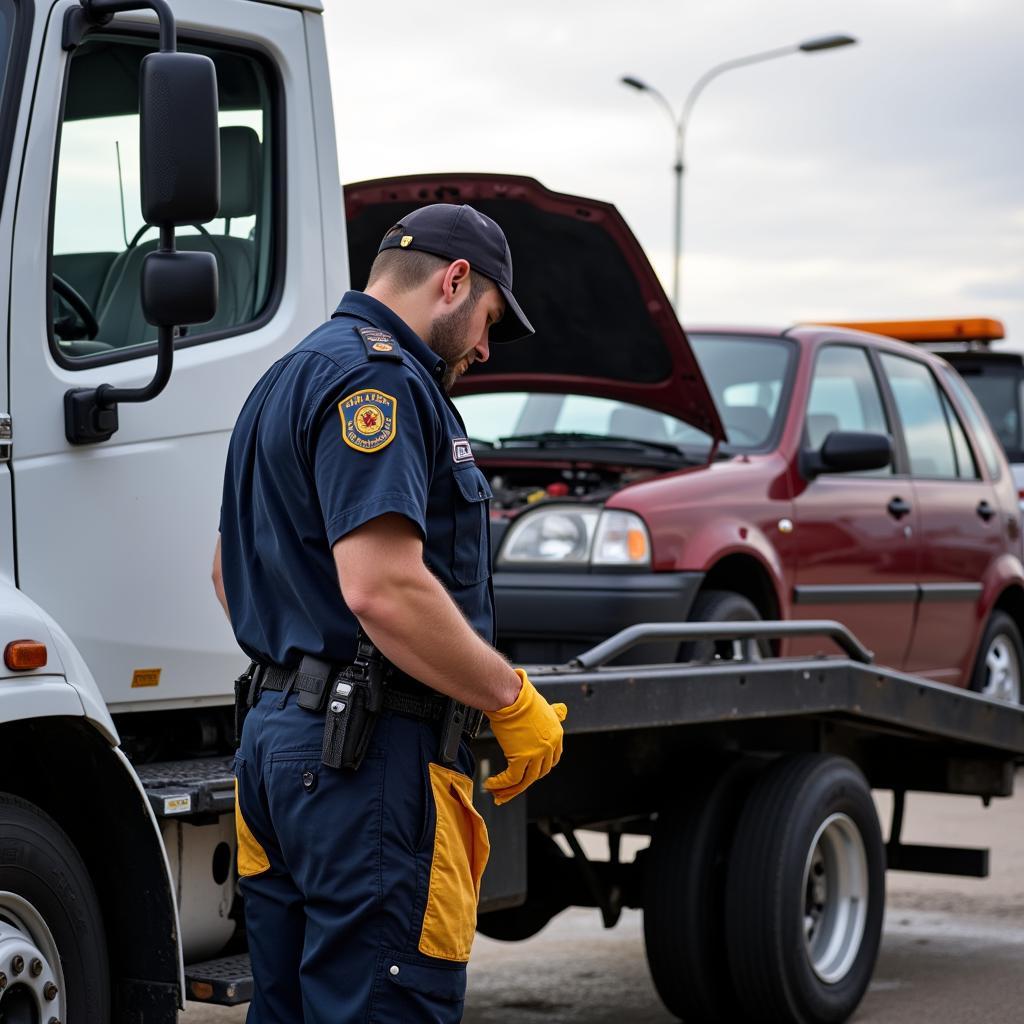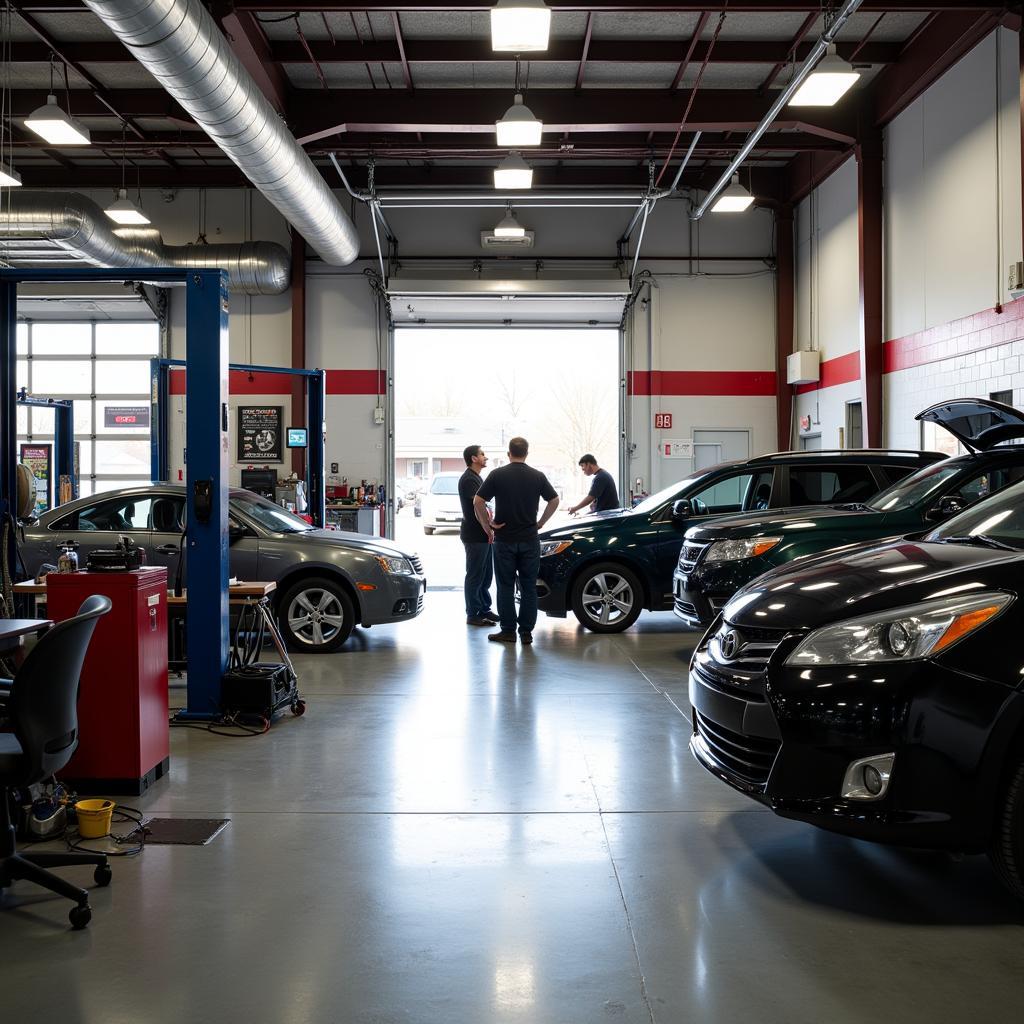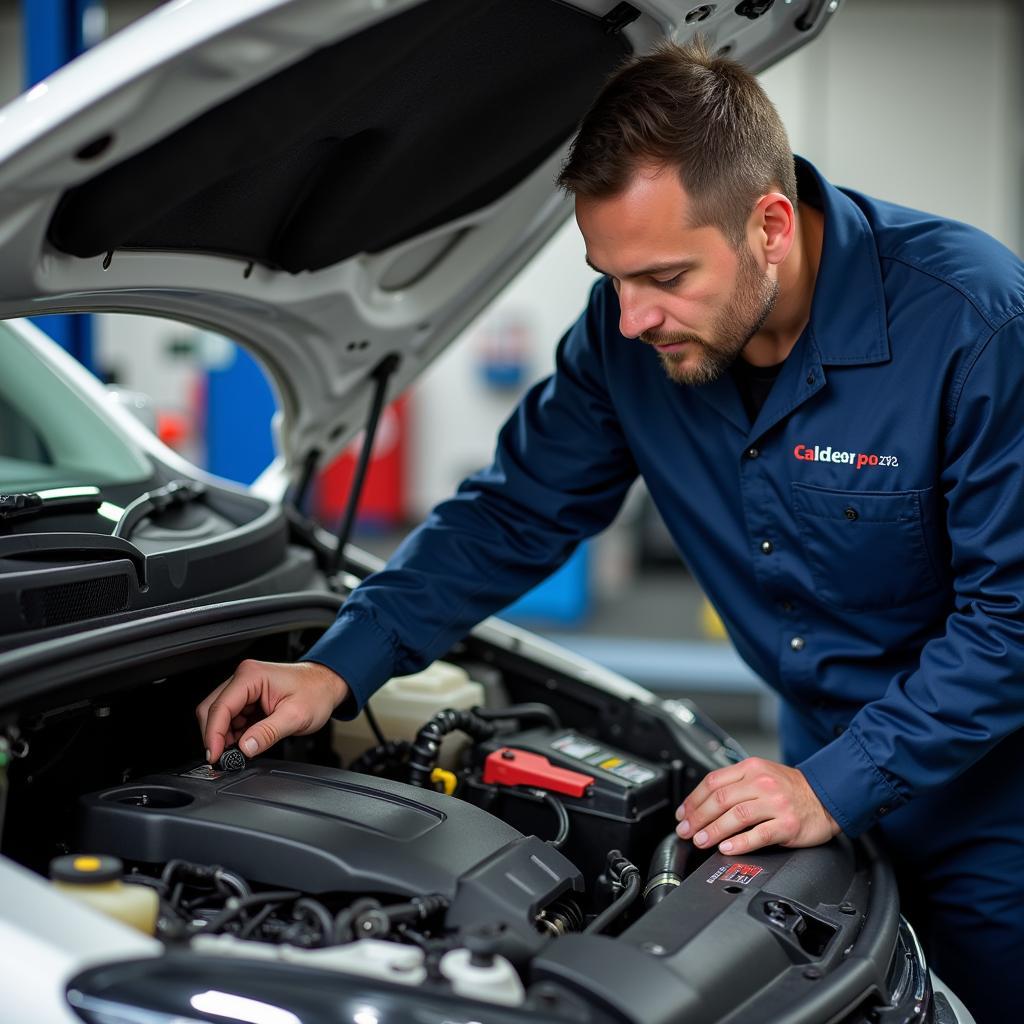Does Car Insurance Cover Towing Service?
When your car breaks down unexpectedly, leaving you stranded on the side of the road, the last thing you want to worry about is the cost of towing. A common question that arises in such situations is, “Does Car Insurance Cover Towing Service?” Understanding your insurance policy and the factors influencing towing coverage is essential for peace of mind.
 Towing Car – Car Insurance Coverage
Towing Car – Car Insurance Coverage
Understanding Towing Coverage in Car Insurance
While car insurance policies vary, many offer optional towing and labor coverage as part of their roadside assistance package. This means that your insurance provider will cover the cost of towing your vehicle to a nearby mechanic or repair shop, up to a certain limit.
What Types of Situations are Typically Covered?
Towing coverage under car insurance is generally provided for situations where your vehicle is immobilized due to:
- Mechanical Failure: This includes engine problems, transmission issues, and other mechanical breakdowns.
- Flat Tire: If you have a flat tire and are unable to change it yourself, towing to a repair facility is usually covered.
- Dead Battery: In case of a dead battery, jump-starting services are often included in roadside assistance, but if your car can’t be jump-started, towing might be necessary.
- Accident: If your vehicle is undrivable after an accident, your insurance will typically cover towing to a repair shop.
Factors Affecting Towing Coverage
Several factors can influence whether your car insurance covers towing and the extent of coverage:
- Type of Coverage: Comprehensive and collision coverage often include towing as an add-on, while liability-only policies usually don’t.
- Insurance Provider: Coverage limits and terms vary significantly among insurance companies. Some providers may impose mileage restrictions or limit the number of towing incidents covered per year.
- Policy Limits: Your policy will specify a maximum dollar amount or mileage limit for towing services.
- Location: Coverage benefits might differ depending on your location and the availability of towing services.
Checking Your Policy and Contacting Your Insurer
The best way to determine your towing coverage is to review your car insurance policy documents. Look for sections related to “roadside assistance,” “towing and labor,” or similar terms.
If you’re still unsure or need clarification, don’t hesitate to contact your insurance agent or company directly. They can provide specific details about your coverage and guide you through the claims process if needed.
Tips for Utilizing Towing Coverage
- Save Your Insurer’s Contact Information: Store your insurance provider’s phone number and policy details in your phone or keep a physical copy in your glove compartment for easy access during emergencies.
- Understand the Claims Process: Familiarize yourself with the towing claims process of your insurance company. Find out if you need to arrange towing yourself or if they have preferred towing providers.
- Keep Records: Maintain records of all communication, receipts, and documentation related to towing services.
Benefits of Having Towing Coverage
- Financial Protection: Towing can be expensive, especially for long distances. Having coverage minimizes out-of-pocket expenses.
- Peace of Mind: Knowing you have towing assistance provides reassurance and reduces stress during unexpected breakdowns.
- Time-Saving: Your insurance company can often dispatch a tow truck quickly, saving you valuable time and effort.
Conclusion
While car insurance policies don’t always automatically include towing services, opting for coverage as part of roadside assistance is a wise investment for most drivers. It provides financial protection, peace of mind, and timely assistance when faced with unforeseen vehicle breakdowns. By understanding your policy, contacting your insurer for clarification, and following the recommended tips, you can navigate towing situations with greater confidence and minimize the financial burden of unexpected car troubles.

